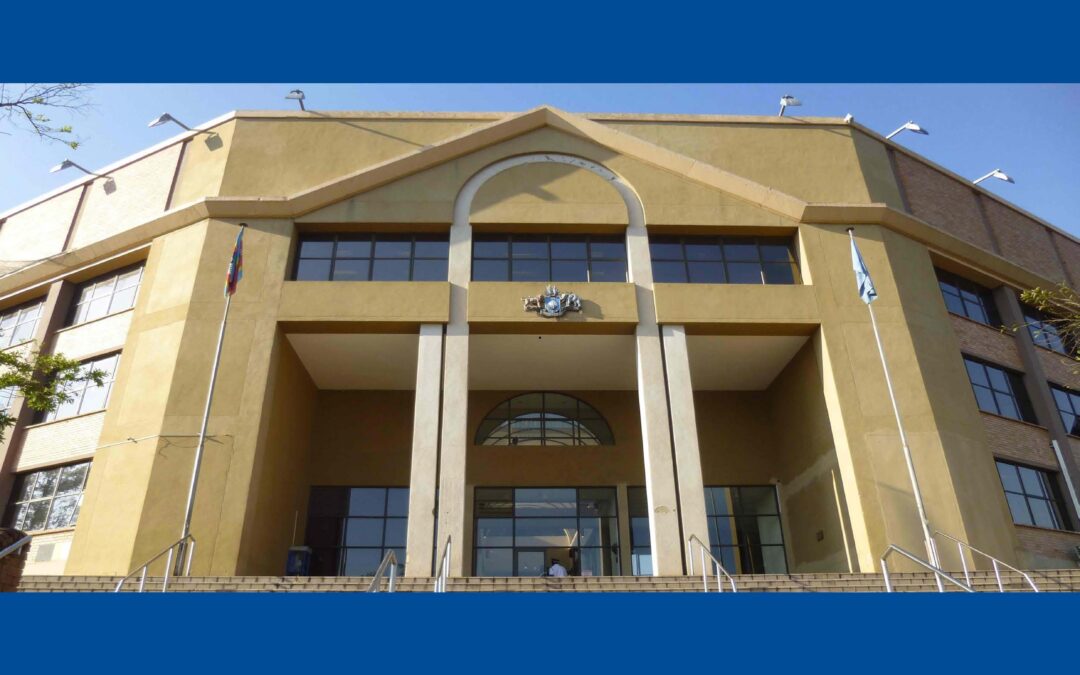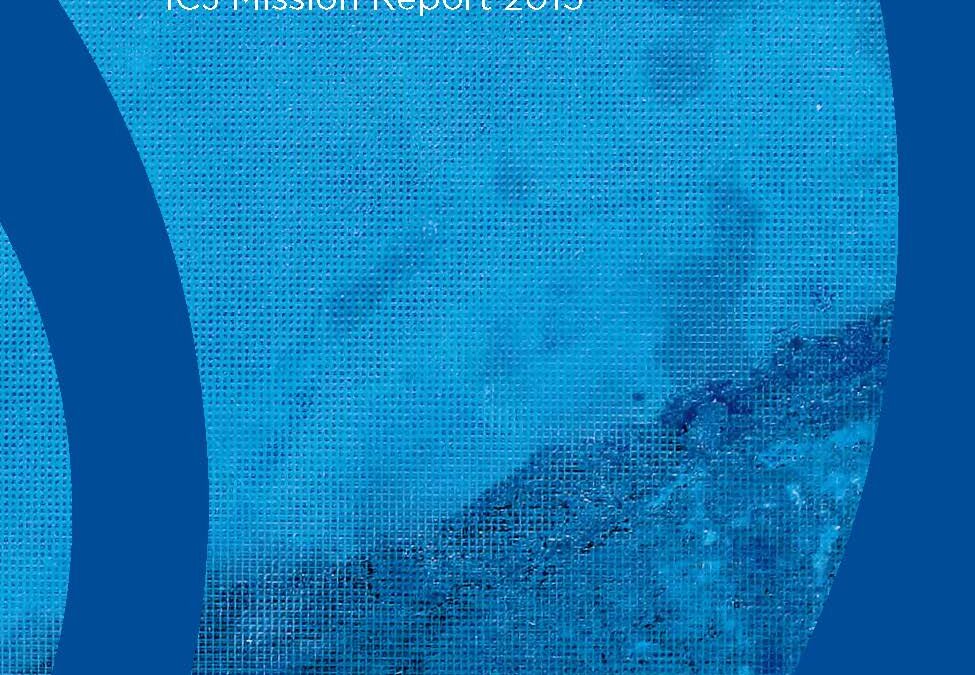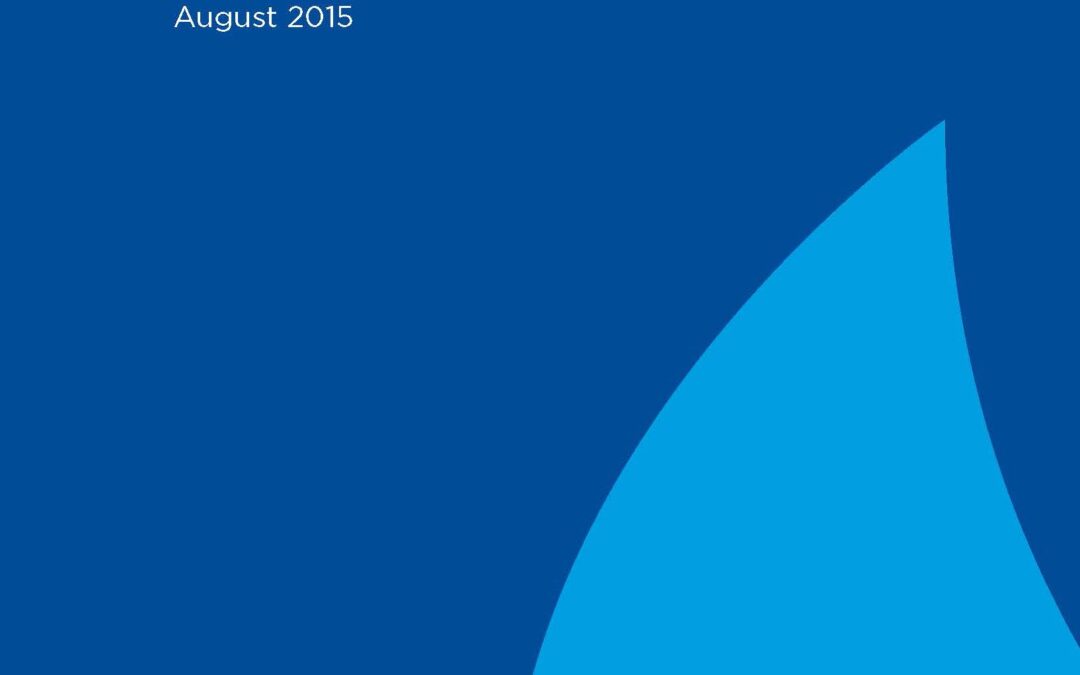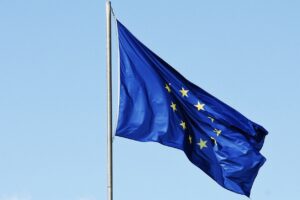
Feb 18, 2016
Today the ICJ launched a new report that makes several findings and recommendations regarding the independence and accountability of the judiciary in the country.
The report is a result of the International Fact Finding Mission in Swaziland (IFFM-SZ) held in 2015 by the ICJ, in collaboration with the Africa Judges and Jurists Forum (AJJF), Judges for Judges Netherlands (J4J) and the Commonwealth Magistrates’ and Judges’ Association (CMJA).
The mission was conducted at the backdrop of a number developments of concern for the independence and accountability of the judiciary in Swaziland.
The report observes that:
- The Kingdom of Swaziland has a constitutional and legislative framework that does not respect the separation of powers or provide the necessary legal and institutional framework and safeguards to ensure the independence of the judiciary;
- The former Chief Justice Ramodibedi failed to protect and defend the institutional independence of the judiciary;
- The Executive failed to respect the independence of the judiciary; and
- The failure to respect the independence of the judiciary by the Executive and the failure by the Chief Justice to defend the institutional independence of the judiciary created conditions conducive to abuse of the legal system for personal gain
Presenting the Mission’s findings, the ICJ Africa Regional Programme Director, Arnold Tsunga urged the Crown, Judiciary, civil society and international community to collectively work towards the implementation of the recommendations to strengthen the institutional and structural independence of the judiciary thereby restoring citizen’s and stakeholders confidence in the judiciary and the rule of law.
Contact
Arnold Tsunga, ICJ Regional Director for Africa, t: +27 73 131 8411, e: arnold.tsunga(a)icj.org
Swaziland-Justice locked out RoL crisis-Publications-Fact Finding Mission Report-2016-ENG (full report, in PDF)

Feb 18, 2016
Today the ICJ published a final report on the reform of the legal profession in the Kyrgyz Republic and creation of a unified bar association.
The report sets out the ICJ’s observations and provides recommendations on the issues that should be addressed as a matter of priority in the course of the reform.
“Resolving these issues will lay the foundations for a strong Kyrgyz legal profession based on international law and standards on the independence of lawyers,” said Róisín Pillay, ICJ Europe Programme Director.
The report welcomes the establishment of a unified Advokatura as an important step both for lawyers and the whole justice system as lawyers play an essential role in any legal system in upholding the rule of law and protecting human rights.
However, the report notes that the establishment of a legal and institutional framework is only the first step in creating an independent, self-regulated profession capable of ensuring integrity and high professional standards.
The ICJ stresses the importance of the momentum as well as the privileged position of lawyers who became the leadership of the new Advokatura.
“It is the vision and actions of these people that will shape the future of the legal profession in the country,” Róisín Pillay added.
The report is based on the ICJ’s mission to the Kyrgyz Republic in September 2015, organized to assess, examine and analyze the reform in terms of the functioning of the legal profession.
An ICJ team met with various representatives of the Advokatura, including members of the Council of the Advokatura and the Advokatura’s constituent bodies, such as the Ethics Commission, the Committee to Protect the Rights of Advocates and the Legislation Committee of Advokatura.
The ICJ, in cooperation with the Training Centre of Advokatura, held a round table discussion with lawyers and held meetings with members of the Prosecutor’s Office and the Judiciary.
Kyrgyzstan-New Advokatura-News-Web Story-2016-RUS (Story in Russian, PDF)
Kyrgyzstan-New Advokatura-Publications-Reports-Fact Finding Mission Report-2016-ENG (Report in English, PDF)
Kyrgyzstan-New Advokatura-Publications-Reports-Fact Finding Mission Report-2016-RUS (Report in Russian, PDF)

Feb 2, 2016
The report, published today, assesses the current state of the independence and accountability of the Serbian judiciary and prosecution service, and, in particular, the self-governance of the two professions under the High Judicial Council and the State Prosecutors’ Council.
Following ICJ’s visit to Serbia on 26-30 October 2015, the report Serbia’s judges and prosecutors: the long road to independent self-governance concludes that a culture of dependency from the Executive still exists in the Serbian judiciary and that the system is affected by a stress of reform, due to the continued introduction of new judicial reforms without proper implementation.
The ICJ considers that the self-governance of the judiciary and of the prosecution service, entrusted respectively to the High Judicial Council and to the State Prosecutorial Council, is relatively weak.
The ICJ mission has identified considerable shortcomings in these bodies, including:
- excessive dependence in practice on the political branches of government;
- lack of effective procedures and of sufficient will in the Councils to defend the independence, autonomy and professional integrity of their professions and of individual judges and prosecutors;
- appointment, selection and dismissal procedures open to direct and indirect political influence;
- lack of effective procedures of evaluation of the work of judges and prosecutors;
- misuse of such procedures to impose conformity in decisions;
- a strong hierarchical system in the prosecution service and, in practice, in the judiciary, that undermines internal independence and risks undermining independence of investigations and prosecutions.
The mission, aimed to assess the situation of self-governance of the judiciary and of the prosecutorial service at a critical juncture in their development, took place in the context of the ICJ’s global objective to advance the effective administration of justice and the independence of judges and lawyers.
Serbia-Long Road to Indep Self-Gov-Publications-Reports- Fact-Finding Mission Report-2016-ENG (full report in PDF, English)
Serbia-Long Road to Indep Self-Gov-Publications-Reports- Fact-Finding Mission Report-2016-SER (full report in PDF, Serbian)

Oct 29, 2015
A report launched today by the ICJ highlights a significant degradation in recent years of the situation of human rights and independence of the judiciary in Venezuela.
In its report, Venezuela: The Sunset of the Rule of Law, the ICJ underlines that since the publication of its June 2014 report– Strengthening the Rule of Law in Venezuela – there have been accelerated, serious and systematic attacks on the independence and impartiality of the judiciary, and a severe erosion of the rule of law.
“There is a clear disconnect between what is contained in the country’s Constitution and international obligations, and what happens in practice,” said Alejandro Salinas, the author of the report, who led a fact-finding mission for the ICJ in August 2015.
“This already grave situation has been aggravated by the fact that the Government has now effectively ceded a part of its sovereignty and authority to criminal organizations, through the establishment of so called ‘peace territories’,” he added.
As a result, there has been recently a clear escalation of attacks against human rights defenders and any form of social and political opposition, the ICJ says.
The high level of legal impunity for perpetrators of human rights violations and common felonies stands in stark contrast to the robust manner in which preventive and restrictive measures and prosecutions have been deployed to silence members of civil society, social activists and political opponents, the ICJ further notes.
“Without a doubt, there is a severe and persistent crisis of human rights, democracy and the rule of law in Venezuela. The international community has a duty to urgently address the situation in accordance with international law,” said Wilder Tayler, ICJ Secretary General.
The report also shows a worsening of the state of independence of the judiciary due to the lack of security of tenure enjoyed by most judges and prosecutors, and the failure of the State to guarantee human rights defenders and lawyers the full exercise of their rights and professional functions.
Some of the representative cases highlighted in the report include the reopening of the criminal trial against judge María Lourdes Afiuni; the preventive detention of lawyer Tadeo Arrieche; the arrest warrant against the executive members of the editorial board of the media “El Nacional”, “Tal Cual” y “La Patilla”; and the sentencing of the political opposition figure Leopoldo López to almost 14 years’ imprisonment.
In addition, the ICJ expressed concern at the state of emergency declared in 23 municipalities since August 2015. Persons in these municipalities have been subject to unjustified and unlawful restriction of certain of their rights guaranteed under the International Covenant on Civil and Political Rights.
The ICJ in its report also underscored the arbitrary measures taken against Colombian citizens, including children, who have been subject to deportation, as well as the unjustified restriction of rights, such as freedom of assembly and peaceful demonstration, ahead of the elections for the National Assembly scheduled for 6 December.
Contact:
Wilder Tayler, ICJ Secretary General, t: +41 22 979 3825 ; e: wilder.tayler(a)icj.org
Alejandro Salinas, author of the report, e: alejandro.salinasrivera(a)gmail.com
Venezuela-Ocaso Estado Derecho-News-Press releases-2015-SPA (full press release in PDF, Spanish)
Venezuela-Sunset of Rule of Law-Publications-Reports-2015-ENG (full report in PDF, English)
Venezuela-OcasoEstadoDerecho-Publications-Reports-2015-SPA (full report in PDF, Spanish)

Aug 25, 2015
The Maldives government must immediately reverse the politicisation of the country’s judiciary and the erosion of rule of law in the country, said the ICJ and South Asians for Human Rights (SAHR) in a joint fact-finding report released today.
The 35-page report, entitled Justice Adrift: Rule of Law and the Political Crisis in the Maldives highlights the breakdown of the rule of law and human rights protections in the Maldives, exemplified by the arrest and trial of former President Mohamed Nasheed.
Nasheed, who had been under house arrest, was unexpectedly imprisoned again on Monday without a clear legal basis.
The ICJ and SAHR called on the Maldives government to immediately release Nasheed from detention and to ensure he receives necessary medical care and access to his family and lawyers.
A joint delegation of the ICJ and SAHR conducted a fact-finding mission to the Maldives in May 2015 to assess the human rights situation since the current government assumed power in 2013.
“We documented a serious erosion of the independence, impartiality and integrity of the judiciary, which has resulted in the deterioration in the rule of law in the Maldives and the stalling of the country’s transition toward a more representative government,” said Hina Jilani, SAHR Chairperson and a Commissioner of the ICJ.
“This current crisis in the rule of law risks turning the country back to the authoritarian days of the past that it had so promisingly broken away from in 2008,” she added.
After decades of authoritarian rule, in 2008 the Maldives promulgated a new Constitution that established independent democratic institutions, the rule of law, human rights protections and the separation of powers.
The new report documents how the institutional and legal reforms needed to consolidate this democratic transition stalled and have endangered a backslide to the country’s authoritarian legacy.
“The political crisis in the Maldives has hurt the country’s human rights situation, and it can only be resolved with the establishment of credible and impartial institutions in the country, particularly the judiciary,” said Nikhil Narayan, ICJ Senior Legal Adviser for South Asia.
“The Maldives should take immediate steps to establish effective and independent government institutions in compliance with its international human rights obligations under Commonwealth and UN standards on judicial independence and separation of powers,” he added.
Among the specific problems identified in the report are: judicial proceedings against the national human rights commission and other independent institutions, as well as interference in other spheres, in a manner that raises serious concerns as to judicial independence and accountability; judicial conduct in high-profile criminal cases, including former President Mohamed Nasheed, which are grossly unfair and violate international fair trial standards; arbitrary and undue parliamentary interference in independent constitutional institutions; and, instances of serious violations and abuse of fundamental rights of civil society and human rights defenders, among other concerns raised.
“The Maldives must urgently implement the necessary reforms to strengthen judicial independence, the rule of law and human rights in accordance with international standards,” said Jilani.
The Maldives’ human rights record will be discussed at the UN Human Rights Council later next month as part of the Universal Periodic Review (UPR) process.
Member states of the UN have already made a range of recommendations to the Maldives, and can make further statements at the Council session.
The government will be expected formally to respond and indicate which of the recommendations it will commit to implement over the coming years.
The ICJ-SAHR report therefore comes at a timely moment, urging Maldives authorities to strengthen human rights protections, judicial independence and the rule of law, including by accepting and implementing key UPR recommendations as well as prior recommendations by UN Special Rapporteurs who have visited the country, and urging the international community to hold the Maldives to its obligations and commitments.
“The Maldivian government must make good on its assurances to the ICJ-SAHR delegation, the UN Human Rights Council, the UN Special Rapporteur on Independence of Judges and Lawyers and other outside observers of its commitment to the goal of strengthening judicial independence, the rule of law, fundamental rights and separation of powers, by demonstrating real steps to implement the recommendations set out by the delegation,” said Narayan.
Contact:
Nikhil Narayan, ICJ Senior Legal Adviser for South Asia, t: +977 9813187821 ; e: nikhil.narayan(a)icj.org
Deekshya Illangasinghe, Executive Director, SAHR, t: + 941 12695910 ; e: deekshya(a)southasianrights.org
Maldives-Justice-Adrift-Rule of Law-Publications-fact-finding report-2015-ENG (full report in pdf)









